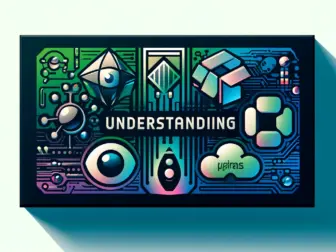Tag - OpenCV
Blog , May 29, 2024 , Computer Vision, Keras, Machine Learning, Model Training, OpenCV, OpenMV, PyTorch, TensorFlow, Tool Comparison
Blog , May 29, 2024 , Computer Vision, Embedded Applications, Keras, Machine Learning, Model Training, OpenCV, OpenMV, PyTorch, Real-Time Object Detection, TensorFlow
Exploring the Power of OpenCV: A Comprehensive Guide to Computer Vision
OpenCV, short for Open Source Computer Vision Library, is a powerful tool that enables developers to incorporate advanced computer vision techniques into their projects. Originally developed by Intel in 1999, OpenCV has since become a go-to resource for researchers, engineers, and hobbyists looking to explore the fascinating world of computer vision.
One of the key features of OpenCV is its versatility. It offers a wide range of functions and algorithms that can be used for tasks such as image processing, object detection, facial recognition, and more. Whether you are working on a simple image editing project or a complex machine learning application, OpenCV provides the tools you need to get the job done.
OpenCV is an open-source library, meaning that it is freely available for anyone to use and modify. This has led to a large and active community of developers who contribute to the library and create new tools and libraries built on top of OpenCV. This vibrant ecosystem ensures that OpenCV remains at the cutting edge of computer vision research and development.
One of the strengths of OpenCV is its support for multiple programming languages, including C++, Python, and Java. This makes it accessible to a wide range of developers, regardless of their preferred programming language. Whether you are a seasoned C++ developer or a Python enthusiast, you can take advantage of OpenCV’s powerful features and algorithms in your projects.
OpenCV also provides support for a wide range of platforms, including Windows, Linux, macOS, iOS, and Android. This means that you can develop applications that leverage computer vision on a variety of devices, from desktop computers to mobile phones. Whether you are building a desktop application, a web service, or a mobile app, OpenCV has you covered.
One of the most exciting aspects of OpenCV is its ability to interface with hardware devices such as cameras and sensors. This allows you to create applications that can capture and process real-time video streams, enabling a whole new range of possibilities for computer vision applications. Whether you are building a surveillance system, a robotics application, or a virtual reality experience, OpenCV’s hardware support can help you bring your vision to life.
In conclusion, OpenCV is a versatile and powerful tool that enables developers to explore the fascinating world of computer vision. Whether you are a beginner looking to get started with image processing or an experienced developer working on cutting-edge machine learning applications, OpenCV has the tools and resources you need to succeed. By leveraging OpenCV’s rich set of features and algorithms, you can unlock new possibilities in your projects and take your development skills to the next level.
Mastering Computer Vision with OpenCV: A Deep Dive into Image Processing and Machine Learning
OpenCV, or Open Source Computer Vision Library, is a powerful tool that enables developers to harness the potential of computer vision in their projects. Originally developed by Intel, OpenCV has grown to become one of the most widely used libraries in the field of computer vision, providing a comprehensive set of tools and algorithms for image processing, object detection, facial recognition, and more.
At the heart of OpenCV is its vast collection of functions and algorithms that cover a wide range of computer vision tasks. Whether you are looking to perform simple image manipulations or complex machine learning operations, OpenCV offers the tools you need to achieve your goals. With its extensive documentation and community support, OpenCV is a valuable resource for developers of all skill levels.
One of the key advantages of OpenCV is its cross-platform compatibility, with support for multiple programming languages including C++, Python, and Java. This allows developers to work with OpenCV in their preferred language, making it accessible to a broader audience. Additionally, OpenCV’s compatibility with various operating systems and devices further enhances its versatility, enabling developers to create applications for a wide range of platforms.
OpenCV’s open-source nature has also contributed to its popularity, fostering a collaborative community of developers who contribute to the library’s growth and development. This active community ensures that OpenCV remains current and relevant, with new features and improvements being added regularly. By leveraging the collective expertise of the OpenCV community, developers can stay at the forefront of advancements in computer vision technology.
One of the standout features of OpenCV is its support for real-time processing and hardware integration, allowing developers to build applications that interact with cameras, sensors, and other devices. This capability opens up a whole new realm of possibilities for computer vision applications, from robotics and surveillance systems to augmented reality and virtual reality experiences. By leveraging OpenCV’s hardware support, developers can create innovative and immersive applications that push the boundaries of what is possible with computer vision.
In conclusion, OpenCV is a valuable tool for developers seeking to explore the field of computer vision. With its comprehensive


